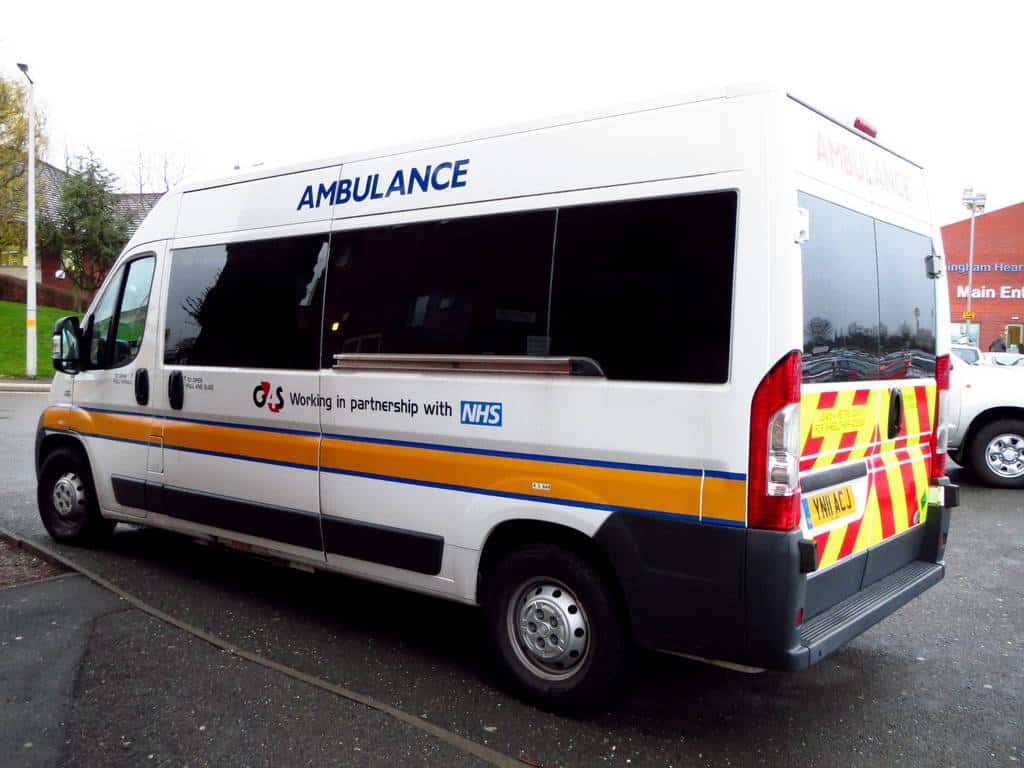THE private company that ferries West Kent NHS patients to and from hospitals and clinics has been criticised for refusing to take terminally ill people to hospice day services.
G4S holds the view that such day services can offer a range of treatments from physiotherapy to art therapy which do not count as ‘medical appointments’.
MP Greg Clark has accused the company of a ‘lack of compassion’ and ‘bureaucratic pedantry’.
He has spoken out against G4S – which was awarded a contract worth £90million to transport patients in 2015 – through his regular column for the Times [page 2] in which he warns ‘the time for excuses is over.’
In his column, the Tunbridge Wells MP candidly discloses a series of concerns raised directly by his constituents about their treatment at the hands of G4S.
The problems are so bad Mr Clark admits he ‘wasn’t surprised’ to read last week’s coverage in the Times which highlighted a damning report on the Transport Service compiled by the West Kent Clinical Commissioning Group (CCG).
It also told of Husnara Begum, a Tunbridge Wells resident who suffers from severe Rheumatoid Arthritis, who was left stranded at a hospital in London for six hours, only to be told by G4S to ‘sort it out herself’.
In the highly critical report, the CCG assessed G4S on five key areas of performance and found it lacking in all but one, with two areas, leadership and responsiveness, receiving a red warning – the lowest grading.
“A lack of compassion with bureaucratic pedantry”
It then transpired the CCG was going to take oversight of the complaints procedure due to serious failings by the company in responding to patients who felt mistreated.
Mr Clark defends the decision by the CCG to replace G4S’s predecessor, due to its own catalogue of failings, but adds: “It is unacceptable that things seem to have got worse since.
“I say ‘seem’ because when I suspected that there could be a systemic problem, I asked for performance data on the contract. None was forthcoming.”
However, his biggest criticism is reserved for the way G4S sidesteps the issue of providing transport for terminally ill patients to hospice day services.
Describing this policy as ‘the worst example’ of how they treat the vulnerable and ill, Mr Clark said: “G4S’s view is that as hospice day services encompass a wide range of treatments from physiotherapy to art therapy they do not, therefore, count as ‘medical appointments’. I think most people would consider this to be an interpretation that combines a lack of compassion with bureaucratic pedantry.”
His sentiments were backed up by Rob Woolley, Chief Executive of Hospice in the Weald, who said: “Clearly all of our patients, having been referred to us, are in medical need as they are generally in the last year of life and medically there is no more curative treatment.
“To suggest that our patients are not in ‘medical need’ shows a fundamental disregard and misunderstanding of the modern Hospice movement.
“The situation continues to evolve which demonstrates both the complexity and poor quality of the patient transport service provided by G4S.”
Contractor defends it record
Commercial director for G4S healthcare services, Craig Smith
Non-emergency patient transport is a complex service, with many factors affecting delivery including the wide range of mobilities, locations, and an ever increasing demand, all of which present a significant logistical challenge.
Hampered by traffic congestion and last minute journey requests we do our best to make sure that everyone arrives at their appointment within 75 minutes – and currently four out of every five patients attend their appointments within this window.
That compares with 68 per cent when we took over the contract, since when we’ve been able to lift our performance despite the number of journeys and length of journeys being above what we or the NHS forecast.
We are working with the clinical commissioning groups in Kent to tackle this increasing complexity and meet the patients’ needs, which are far more acute than anticipated.
We recognise that there are still too many complaints and that some people have received a poor service on too many occasions.
I am sorry for the inconvenience we have caused to them and their family and friends and we are working flat out to improve our performance to ensure it meets the needs of communities across Kent and Medway.








